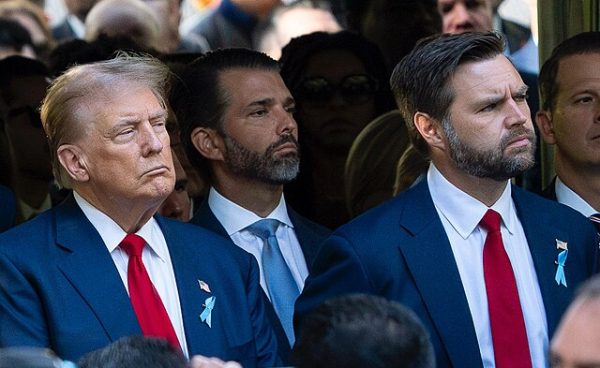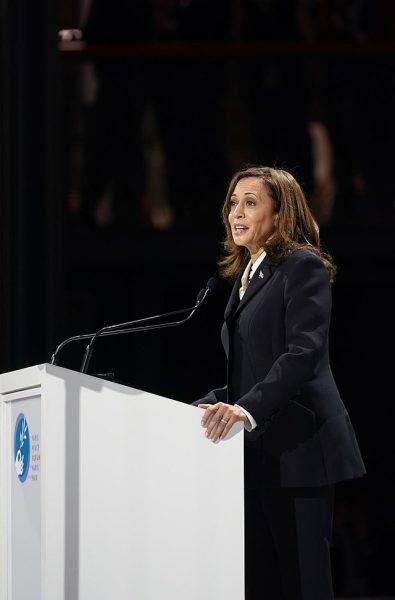Students and faculty at Contra Costa College have complicated feelings about political issues and the presidential candidates this election season.
In interviews with The Advocate, students and staff shared their concerns and mixed feelings about what’s on the ballot.
“I prioritize the restoration and expansion, or at least the safeguarding of the right to make decisions and live without discrimination,” CCC President Kimberly Rogers said in an interview. “And always, high-quality public education.”
Some students feel as if they are trapped in voting for either the Republican or Democratic parties, due to the belief that voting for a third party would be ineffective.
“It’s just bad and bad, and voting for a third party is practically useless since the Democratic and Republican party basically made it impossible for anyone else to have a chance,” said one student who declined to be named.
Another student agreed, expressing disillusionment and anger with the two presidential candidates.
“These are the two people we are getting,” he said.

Some other students feel as if the election is not addressing issues that people care about and is more about competing against one another.
“I feel like we rely more on the elections; it’s more and more of a competition thing rather than an actual political thing,” said CCC student Lilliana Saeteurn. “I feel like it’s not representing the American people in a very good light.”
For some students, the confusion over the election and the dissatisfaction with the candidates is enough to turn them away from voting.
“I am not registered to vote, and do not plan on voting this year,” CCC student Anaya Simon said. “I’m just going to see who wins and wait the next four years until planning to vote because I don’t believe either of the candidates are good fits for the presidency.”
Many students do not feel that our government is prioritizing the wants and needs of our citizens, and are either unsure of whether or not they want to vote, or have completely opposed the idea.
Christina Craig-Chardon, the acting program manager for the social justice programs, acknowledged the challenges of the political system, but noted that as a motivation for voting.
“I am registered to vote and I do plan on voting. Some parts of the government system are working, but I don’t think that things are working at the capacity that I would like to see,” Craig-Chardon said. “One example of that would be the healthcare system. The system is very disparate, and people have to access it in a wide variety of ways, and I think that is a major barrier, but I’m always very interested in voting for candidates that make that a priority – the expansion of healthcare access.”
Craig-Chardon also commented on the issues affecting students currently.
“I am someone who is a fan of the efforts to reduce student loan debt, it’s been really helpful. It’s great to see that the Biden administration has taken that seriously, and it’s helped a lot of people,” Craig-Chardon said. “And that is someone that has come under attack, which is what makes me interested in voting for people who plan to continue to make education more accessible.
Some faculty and staff members at CCC have already taken a head start this voting season. Full-time CCC librarians Erica Watson and Andrew Kuo are both registered to vote and have already sent in their ballots. When reflecting on what has shaped their political stances and desire to vote, the librarians generally credit their family members.
“I grew up in a Democratic household, and I’m a Democrat. My family has already voted by mail-in ballot,” said Kuo in an email. “Being a Democrat in [CA] means choosing between Dems in a lot of races in the state. I try to find credible websites to help me decide between candidates.”
Watson, too, said she comes from a family of voters.
“My dad became a U.S. citizen when I was really young and has never missed an election (local or national) and my father-in-law worked for the U.S. government (Pentagon),” Watson stated in an email. “There are definitely differing views, but nothing that has divided any households or anything.”
In response to being asked about what important issues they had in mind when voting, such as abortion rights and housing affordability, both librarians also felt that their priorities did not only lie with one issue.
“Both issues (abortion rights and housing affordability) are important for me as well as education, and reducing the military budget will help pay for upgrading these areas,” stated Kuo. “Right now, the government is leaning towards big business too much. Besides the many bills, that become laws, being written by corporations at DC, decisions like Citizen’s United further erode the representation of the American people.”
Watson said there were nearly “too many to list” in terms of important issues, but some on her priorities list include women’s rights, the environment, conflict in Gaza, ethnic and racial equality and affordability.
“I think my priorities do not sit with one issue,” Watson added. “There is just this planet, and we all have to live on it. Let’s work together.”
Even amid the dissatisfaction among students, some feel compelled to vote this election.
“I am absolutely registered to vote, I registered as soon as I turned 18. I am going to vote without a doubt,” said Marget Dupuis, a student at Diablo Valley College, part of the Contra Costa Community District. “This election especially, you can’t take a chance by sitting it out. It’s so important for the future of every single person that we don’t let Trump waltz back into office.”
Dupuis acknowledged people’s frustrations with the current political system, but urged that it can be fixed with voting.
“It’s a hot mess. In general I think we need a full systematic reset, but I can be realistic enough to know that now isn’t the time and that it most likely can’t be changed so easily,” Dupuis said. “It’s going to be a slow systematic change by people like us in office.”


